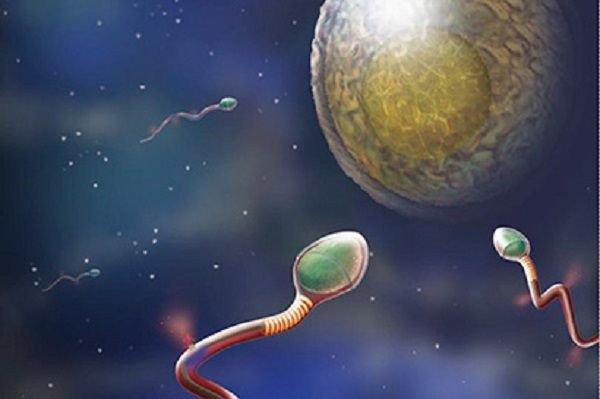Manipulation of newly discovered protein ABHD2 switches sperm ‘on’ & ‘off’

If there is a brain cell that controls overeating, there is also an “on” and “off” switch that triggers the speed in sperm when exposed to egg. The discovery has implications for treating men with fertility problems and possibilities of using it as a form of birth control.
Researchers at Yale University and University of California Berkeley says the protein ABHD2 turns sperm from being lazy swimmers while still in the testicles to vigorous swimmers upon exposure to an egg. The protein must bind to a progesterone to activate the sperm, reports Gizmodo.
The progesterone is a hormone put out by the ova. It opens the switch by allowing a rush of calcium into the tail of the sperm. The progesterone, in turn, was triggered by the protein CatSper. They discovered that by treating sperm with substances to disable different enzymes, and then they exposed the sperm to progesterone.
The sperm did not switch on when the scientists disabled a certain class of enzymes. But using careful refinement, they identified the ABHD2 protein as the one that the progesterone must bind to activate the sperm, according to the study, published in Science.
The protein acts as progesterone-dependent lipid hydrolase by depleting 2AG, or endocannabinoid2-arachidonoylglycerol, from plasma membrane. When 2AG is removed, it leads to calcium influx through CatSper, and it ensures the sperm is activated, explains Science.
By manipulating the protein, scientists could help the sperm of men with fertility problem to become active. But by making a substance that would result in the sperm having defective ABHD2, or disabling the protein, it becomes another birth control method.
Melissa Miller, postdoctoral fellow at UC Berkeley, says that the drug which may be developed could be unisex. Polina Lishko, senior author and assistant professor of molecular and cell biology at UC Berkeley, points out that there are many tissues in the brain, lungs and smooth muscle that have related progesterone or steroid receptors that could work in a similar manner to cause major changes in the tissue.
The switching mechanism adds to the few options for male contraception, outside the traditional condom and vasectomy. These options under development include a gel that blocks the vas deferens – the path where the sperm travels out from the testicle through the penis – and a drug that blocks sperm production. While the drug, Adjudin, appears to have anti-inflammation, anti-cancer and anti-neurodegenerative properties, it must be taken in high doses.





















